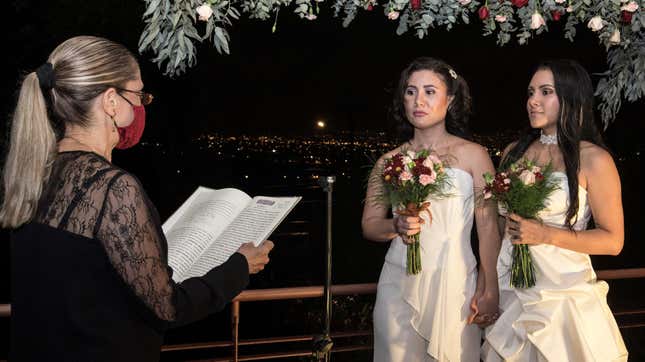Costa Rica Is the First Central American Country to Legalize Same-Sex Marriage
Latest

On Tuesday, Costa Rica became the first country in Central America to legalize same-sex marriage, CNN reports.
-

-

-

-

-

-

-

-

-

-

-

-

-

-

-

-

-

-

-

-

-

-

-

-

-

-

-

-

-

-

-

-

-

-

-

-

-

-

-

-








































